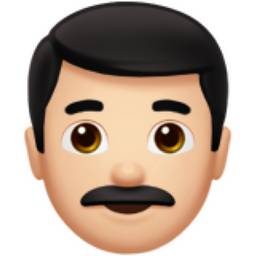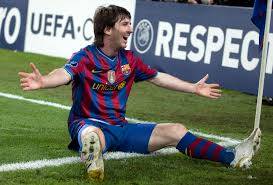Title: The Legends We’ll Never Forget – 10 Football Icons Who Redefined the Game
There’s something deeply magical about watching a footballer do the almost impossible — the kind of skill that makes you stop breathing for a second, just to be sure you’re not dreaming. I remember the first time I saw Maradona dribble past four defenders during a World Cup game. I was 12, glued to a small TV in my cousin’s basement. That moment didn’t just make me cry — it made me want to play, to learn, to feel that kind of joy.
Over the years, football has blessed us with so many extraordinary talents. But only a few truly stand apart — not just for stats or trophies, but for that x-factor: the ability to change the game with a single moment. So, here’s my personal list of the 10 footballers whose names are etched in history and still inspire fans decades later.
1. Pelé (Brazil)
You can’t talk about football greatness without starting with Pelé. This man wasn’t just good — he was poetic. With a touch so gentle it seemed to float, he redefined what it meant to be a forward. Three World Cup titles? Check. Over 1,000 goals? Check. But beyond the numbers, it was his elegance, his vision, and that unstoppable grin. He played football like it was a conversation with the ball — and we were all lucky enough to be in the room.
2. Diego Maradona (Argentina)
Ah, Maradona — the man who made the impossible look routine. The Hand of God incident? Controversial, sure. But the Goal of the Century against England in 1986? That’s what cemented him in legend. His dribbling wasn’t just skill — it was art. You could see the ball dancing around defenders like it had a mind of its own. And in that moment, he wasn’t just representing a team — he was carrying the hopes of a nation on his shoulders.
3. Lionel Messi (Argentina/Barcelona)
If Pelé was poetry, Messi is precision. He’s never flashy — but that’s his genius. A glance, a tap, a movement — and suddenly the defense is in disarray. Watching Messi in his prime was like watching a chess master play with a ball. His consistency over two decades, his ability to stay elite year after year, and now finally lifting that World Cup trophy? That’s not just legacy — it’s redemption.
4. Cristiano Ronaldo (Portugal)
Ronaldo is the embodiment of relentless hunger. From his early days in Lisbon to the manic energy on the pitch in Manchester and Madrid, he never let go. His athleticism? Insane. His determination? Unmatched. Yes, he’s got more goals than anyone else in European football history — but what truly separates him is how he reinvented his game as he aged. From pure speed to explosive power and now, aerial dominance. He didn’t just adapt — he evolved.
5. Johan Cruyff (Netherlands)
If you think football is just about scoring, Cruyff flipped that script. He’s the reason we even have the word “total football”. He played with a mind that operated 10 steps ahead of the game. The way he moved, the way he passed — it wasn’t just winning; it was elevating. He didn’t just leave a mark on the field — he shaped how the game is thought about today.
6. George Weah (Liberia)
This one’s a little less talked about outside football circles, but Weah deserves every ounce of recognition. The first African player to win the Ballon d’Or, he played with such raw power and grace it felt like he was flying. His ability to break lines, his pace, his finishing — he was a force of nature. And beyond football, he became President of Liberia. What a journey.
7. Alfredo Di Stéfano (Spain/Argentina)
Di Stéfano was the ultimate all-rounder — playmaker, shooter, leader. He could control a game like a conductor. In the 1950s and 60s, he was arguably the best player in the world, even though he never played for one national team. Yet he wore the kit with pride. His legacy lives on not just in trophies, but in the quiet dignity with which he played.
8. Franz Beckenbauer (Germany)
Big Beckenbauer — the “Kaiser” — didn’t just revolutionize the role of a defender. He redefined what it meant to captain a team. He didn’t just stop attacks; he orchestrated them. His vision, calm under pressure, and leadership on the pitch were unmatched. And when he played? Every move felt inevitable. He wasn’t just great — he was the great.
9. Gary Lineker (England)
Yes, I know — not every legend wears the ball like a crown. But Lineker’s consistency, discipline, and ability to score at the highest level for years made him a quiet giant. He didn’t need flair — just pure efficiency. A man who knew where to be, when to shoot, and how to finish. And he made it look easy. In a world of superstars, Lineker was the calm, reliable genius.
10. Zinedine Zidane (France)
Zidane — the magician. The way he glided past defenders, like they were moving in slow motion. His free-kick against Italy in the 1998 World Cup final? A masterclass in timing and placement. And yes, the headbutt in the 2006 final — it broke hearts, but it didn’t erase his legacy. To watch him play was to witness pure grace. He didn’t just win games — he made them beautiful.
Final Thoughts
Naming the “best” is always subjective — and honestly, that’s part of the fun. I could’ve listed 10 more names, or swapped one out for another. But the truth is, these players weren’t just athletes. They were storytellers, innovators, symbols of what football can be — when passion meets talent.
Every time I watch a highlight reel of one of them, I don’t just cheer — I remember why I fell in love with the game. And who knows? Maybe one day, someone will be watching my favorite modern player — someone like Mbappé, or Haaland — and feel the same spark.



No comments yet
Be the first to share your thoughts!